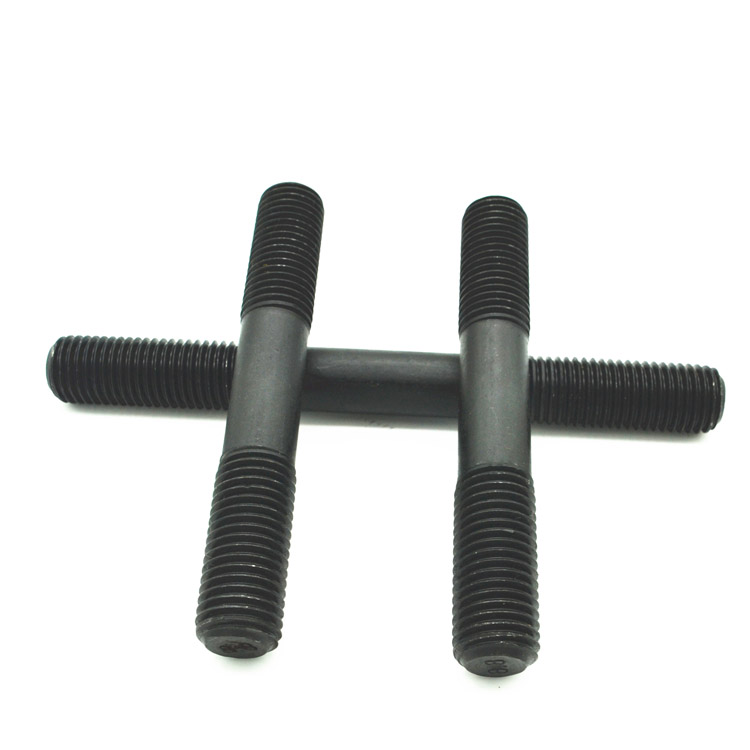Leading Exporter of High-Quality Angle Bolts for Construction and Industrial Applications Worldwide
Jul . 28, 2024 03:25 Back to list
Leading Exporter of High-Quality Angle Bolts for Construction and Industrial Applications Worldwide
Angle Bolts Exporter Ensuring Quality and Reliability in Construction
In the ever-evolving landscape of construction and structural engineering, the demand for high-quality components is paramount. One such essential component is angle bolts, often utilized in various applications ranging from industrial installations to residential projects. As global infrastructures grow and develop, the role of angle bolts exporters becomes increasingly significant in ensuring that the construction industry has access to reliable and durable products.
Understanding Angle Bolts
Angle bolts, or L-bolts, are designed to create connections at right angles, providing stability and support for various structures. They come in different sizes and materials, most commonly steel, but can also be manufactured using stainless steel or other alloys to meet specific industry requirements. Their unique shape allows them to accommodate a variety of applications, including securing metal to wood, joining two pieces of metal at a right angle, and supporting frameworks that bear significant loads. This versatility makes angle bolts indispensable in industries such as construction, automotive, marine, and heavy machinery.
The Role of Angle Bolts Exporters
Angle bolts exporters play a critical role in the supply chain, bridging the gap between manufacturers and end-users across the globe. These exporters ensure that high-quality angle bolts reach the markets where they are most needed, contributing to the safety and longevity of various structures. One of the key responsibilities of angle bolts exporters is to maintain stringent quality control measures. This includes sourcing angle bolts from reputable manufacturers, conducting inspections, and ensuring compliance with international standards such as ASTM (American Society for Testing and Materials) or ISO (International Organization for Standardization).
Quality Assurance
angle bolts exporter

Quality assurance in the production of angle bolts involves several important steps. Firstly, the selection of raw materials is critical, as the strength and durability of angle bolts are closely tied to the quality of the materials used. Exporters often collaborate with manufacturers that use high-grade materials to produce angle bolts, ensuring that they meet the necessary specifications.
Additionally, rigorous testing protocols must be implemented to evaluate the tensile strength, hardness, and corrosion resistance of the bolts. These tests help in determining the reliability of the angle bolts under various environmental conditions, which is essential for their use in construction projects. Exporters must also be equipped to provide documentation that confirms the performance and certifications of their bolts, giving buyers confidence in their quality.
Market Trends and Demands
The global construction market has seen a significant increase in demand for angle bolts, driven by urbanization and infrastructure development in emerging economies. Exporters must stay attuned to market trends, adjusting their strategies to meet the fluctuating needs of different regions. For instance, as sustainability becomes a greater concern, there is a rising demand for eco-friendly materials and processes. Angle bolts exporters are increasingly seeking manufacturers who use sustainable practices in their production processes.
Conclusion
The role of angle bolts exporters is crucial in the modern construction landscape. By ensuring the availability of high-quality, reliable angle bolts, exporters help to support the safety and integrity of structures worldwide. As the construction industry continues to evolve, angle bolts exporters must adapt to changing demands, embracing innovation and maintaining standards that support the growth of safe and sustainable infrastructure. Ultimately, the partnership between exporters and manufacturers will ensure that angle bolts remain a trusted choice for builders and engineers around the globe.
Latest news
-
High-Quality Panel Stud Bolt Reliable Panel Stud Bolt Factory & Suppliers
NewsJul.08,2025
-
High-Precision Fine Thread Locknuts Manufacturer & Supplier Custom Solutions
NewsJul.08,2025
-
PH Imperial Stud Bolt – High Strength Fasteners from Leading Supplier & Factory
NewsJul.07,2025
-
High-Quality Allen Wrench Bolts Leading Factory, Company & Suppliers
NewsJul.07,2025
-
Wholesale Ball Stud Bolt - High Quality Supplier & Factory Price Reliable Wholesale Ball Stud Bolt Company
NewsJul.06,2025
-
High-Strength Alloy Bolts Manufacturer & Supplier Quality Alloy Fasteners Factory
NewsJul.06,2025
